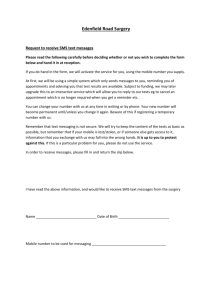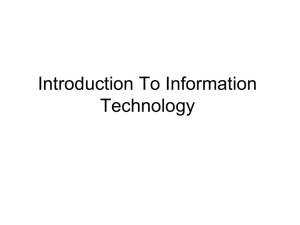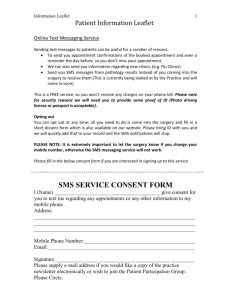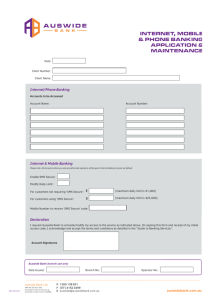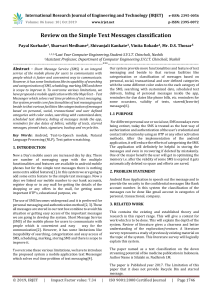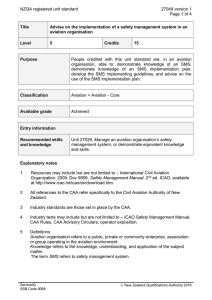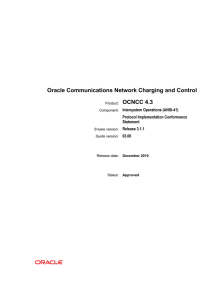The following guidance provides advice on ... staff and students. It ... SMS Text Messages
advertisement
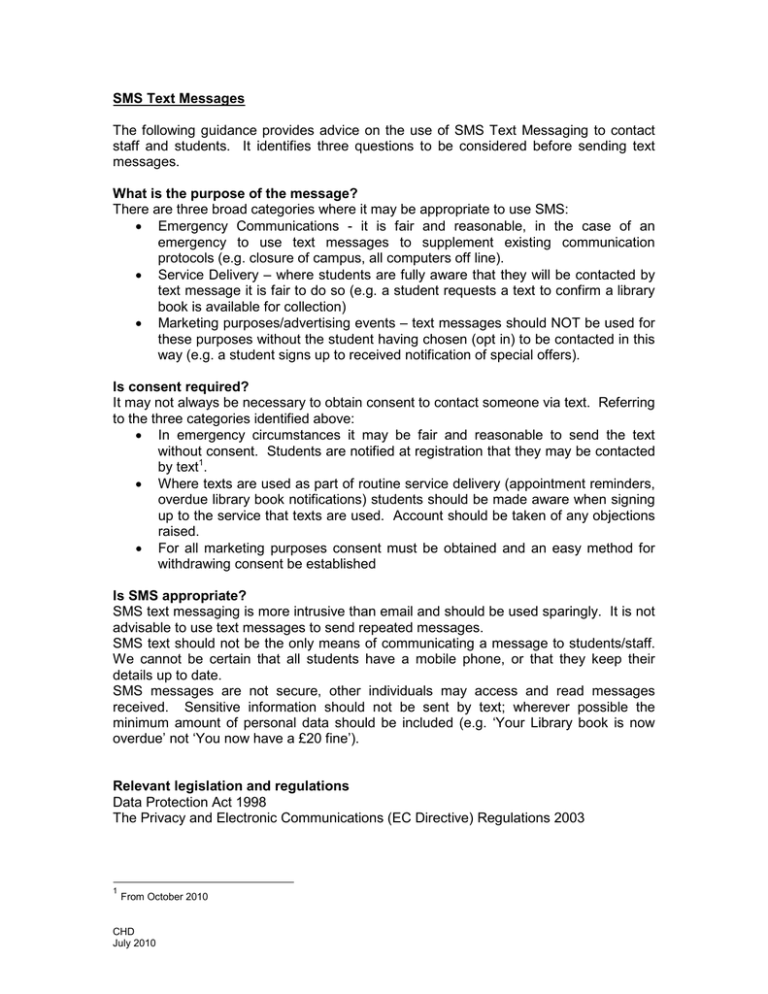
SMS Text Messages The following guidance provides advice on the use of SMS Text Messaging to contact staff and students. It identifies three questions to be considered before sending text messages. What is the purpose of the message? There are three broad categories where it may be appropriate to use SMS: • Emergency Communications - it is fair and reasonable, in the case of an emergency to use text messages to supplement existing communication protocols (e.g. closure of campus, all computers off line). • Service Delivery – where students are fully aware that they will be contacted by text message it is fair to do so (e.g. a student requests a text to confirm a library book is available for collection) • Marketing purposes/advertising events – text messages should NOT be used for these purposes without the student having chosen (opt in) to be contacted in this way (e.g. a student signs up to received notification of special offers). Is consent required? It may not always be necessary to obtain consent to contact someone via text. Referring to the three categories identified above: • In emergency circumstances it may be fair and reasonable to send the text without consent. Students are notified at registration that they may be contacted by text1. • Where texts are used as part of routine service delivery (appointment reminders, overdue library book notifications) students should be made aware when signing up to the service that texts are used. Account should be taken of any objections raised. • For all marketing purposes consent must be obtained and an easy method for withdrawing consent be established Is SMS appropriate? SMS text messaging is more intrusive than email and should be used sparingly. It is not advisable to use text messages to send repeated messages. SMS text should not be the only means of communicating a message to students/staff. We cannot be certain that all students have a mobile phone, or that they keep their details up to date. SMS messages are not secure, other individuals may access and read messages received. Sensitive information should not be sent by text; wherever possible the minimum amount of personal data should be included (e.g. ‘Your Library book is now overdue’ not ‘You now have a £20 fine’). Relevant legislation and regulations Data Protection Act 1998 The Privacy and Electronic Communications (EC Directive) Regulations 2003 1 From October 2010 CHD July 2010
